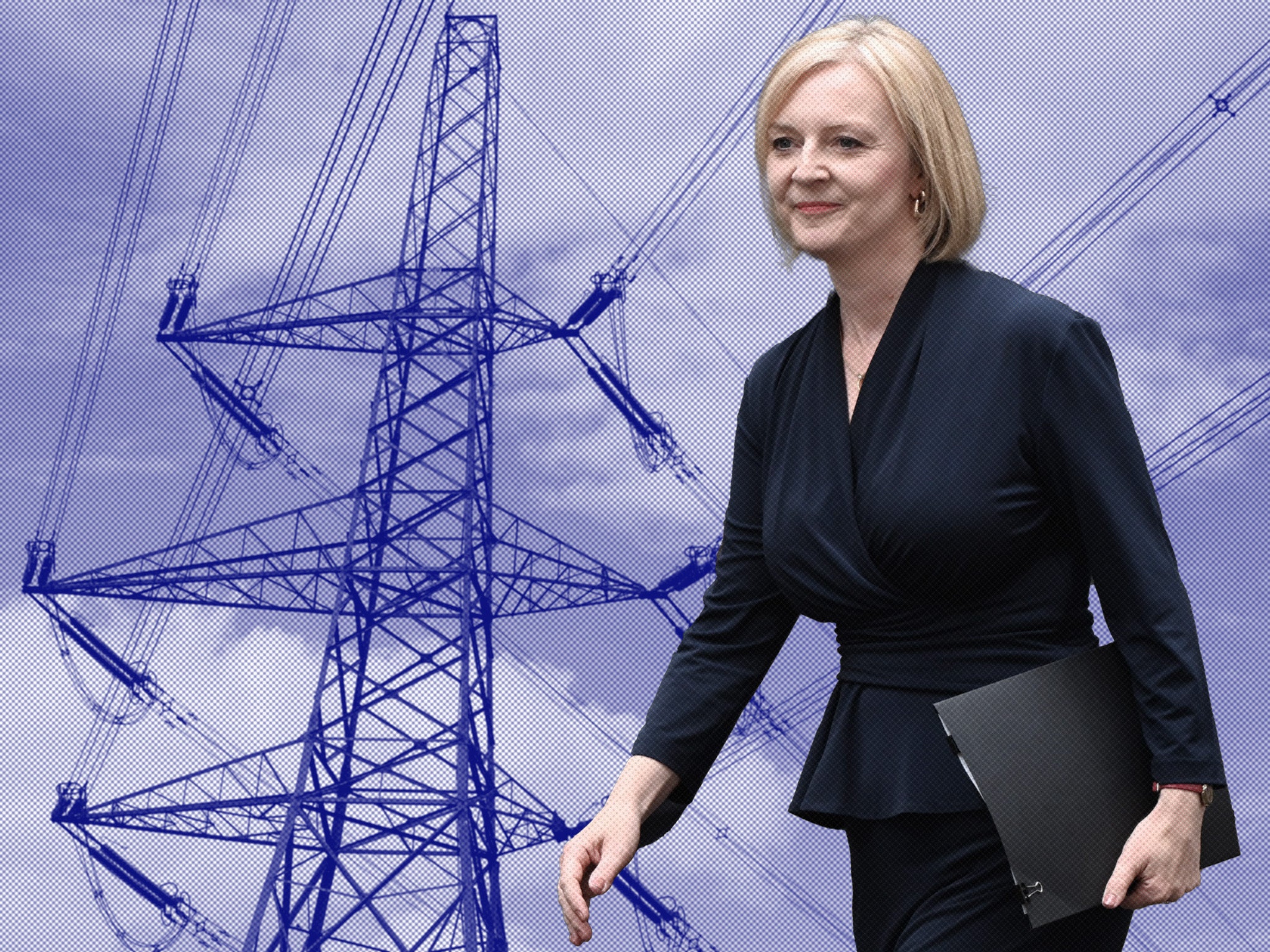Tax cuts will do little to stop the coming economic storm
As the ONS reports slow growth in July, the UK may already be in recession, argues James Moore


Fed up with the long run of bad news courtesy of the drizzle of bad economic numbers? (I feel the collective noun for rotten economic numbers ought to be a “drizzle of”).
Fear not: Liz Truss is going to fix it. Her tax cuts will “unlock growth”. Kaboom!
Torpid growth is the UK’s big economic problem and that has been the case for years. There is no end in sight. I’m writing with the first estimate of July’s GDP having just landed. The Office for National Statistics (ONS) found growth of 0.2 per cent, a little less than the consensus forecast of 0.3 per cent but an improvement over June’s fall of 0.6 per cent, which has been partly blamed on the Jubilee bank holiday (so guess what’s coming).
Is the UK sliding towards recession? The economy needs to record two consecutive three-month quarters in negative territory to quality – and given the small contraction in the second, some think we’re already in one. The National Institute for Economic & Social Research (NIESR) is in that camp, despite July outperforming its expectations of zero growth.
A slow September is entirely possible given that the nation is officially in mourning, together with the impact of another extra public holiday for the Queen’s funeral. The latter doesn’t look like it will be offset by the sort of boost to the retail and hospitality sectors that usually go hand in hand with holiday weekends.
There is, of course, Truss’ energy price freeze, which should serve as soothing balm. A recession this year isn’t in the more optimistic Investec’s baseline case (although it isn’t ruling it out). However, the broker’s view turns darker in the New Year over its fears that interest rates could reach 4 per cent by next spring.
There you have the problem with Truss’s plans to cut both personal and corporation taxes (or at least reverse recent and/or planned increases). With respect to personal taxes (which includes national insurance), it isn’t just that the government’s proposals will likely end up benefitting the wealthy the most at a time when low-income households are in desperate need of support. They will also be inflationary. The Bank of England will have to respond by raising interest rates to blunt the impact and keep the lid on price rises. This is what may tip Britain into a (second?) recession next year.
Team Truss seems blind to this, apparently viewing tax cuts for the wealthy and businesses as some sort of economic fairy dust, which will magically heal the nation’s economic ills. Its response to critics is to ignore them, or shoot them if that’s impossible.
Is this one the reasons behind the firing of Sir Tom Scholar, the Treasury’s “too orthodox” top mandarin? It certainly looks that way to me.
Stuffing the civil service with ideologically aligned yes-men and women is a dangerous thing to do. It is how runaway trains get started. We all know how that ends.
However, back to tax. It is true that the UK has been taxing heavily. The overall burden has been rising. But the real problem facing UK plc is less too much tax than it is too little investment.
On the business side, history has demonstrated that cutting corporation tax is no way to anchor improved business investment. The UK has long boasted about having the lowest headline rate of corporation tax in the G7. But it has consistently lagged behind the world’s most successful economies when it comes to investment, languishing close to the bottom of the European league tables let alone worldwide ones.
Tax breaks, or tax incentives if you prefer, would be a better way to proceed from a business standpoint. Truss’s former leadership rival Rishi Sunak proved that they can be an effective way to stimulate investment with his super deduction coming out of the Covid-19 pandemic.
The downside of the policy was that it was ruinously expensive. But a less costly replacement was being planned until politics intervened and Sunak quit.
As for those personal tax cuts, they would be better directed towards improving Britain’s dismal public services, something the electorate wants to see happening, especially with respect to the NHS. Is anyone paying attention to the electorate beyond Tory Party members? Apparently not.
But eventually hard facts are going to blow the fairy dust that is Trussonomics away. Probably quite quickly.






Join our commenting forum
Join thought-provoking conversations, follow other Independent readers and see their replies
Comments